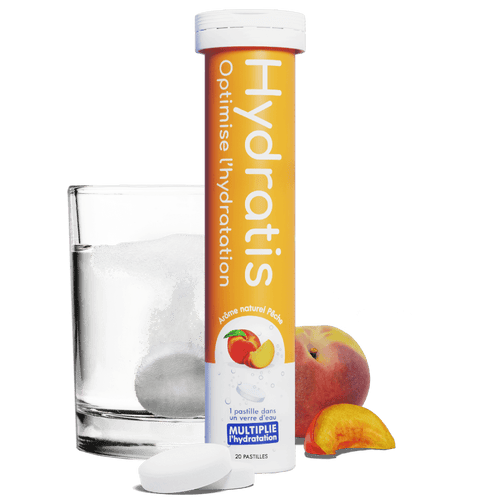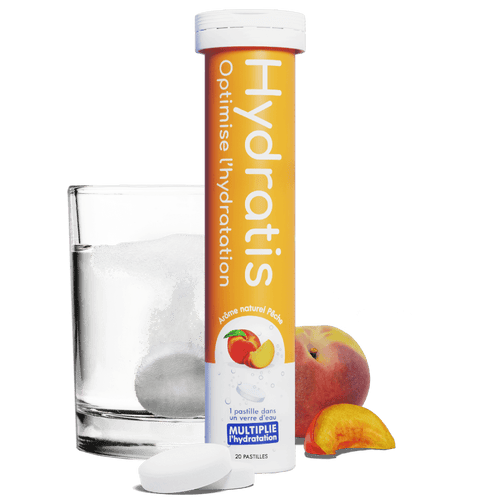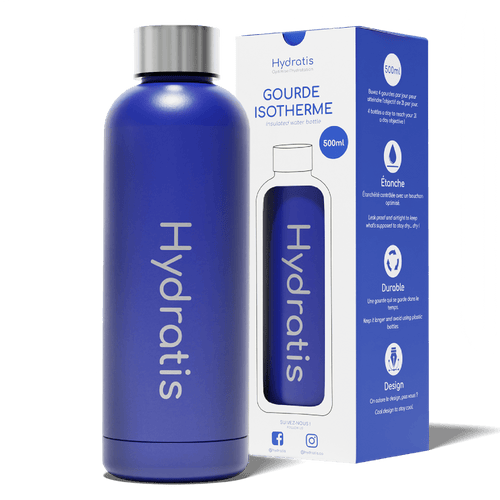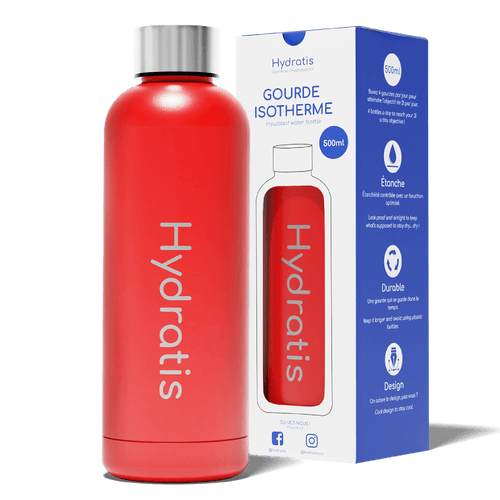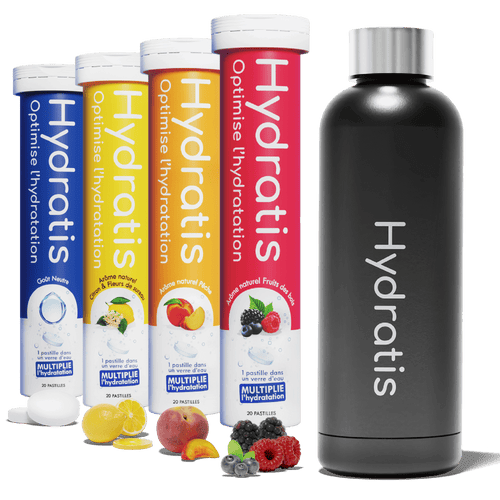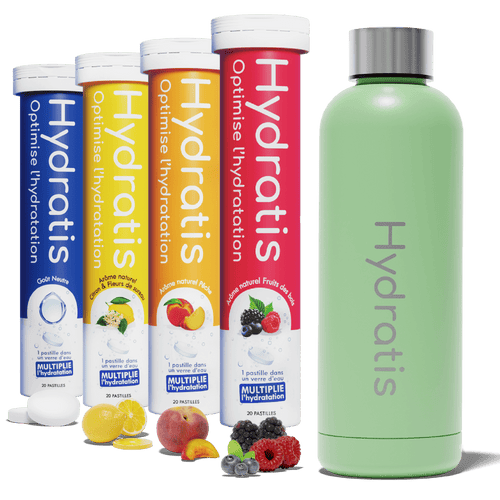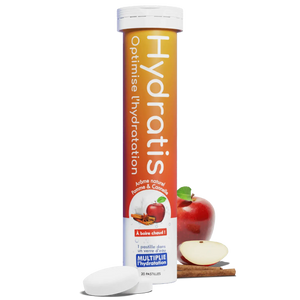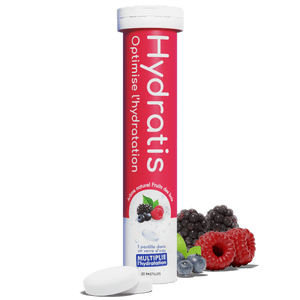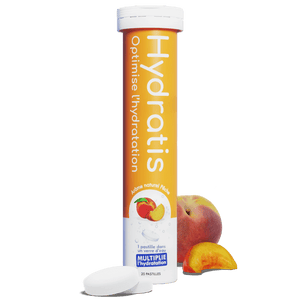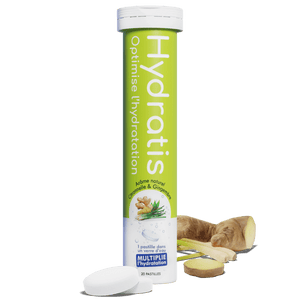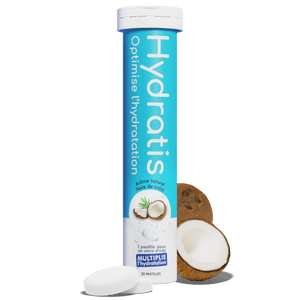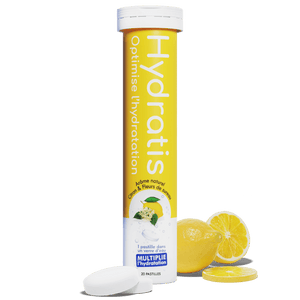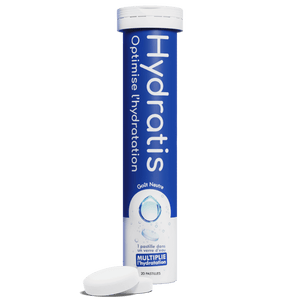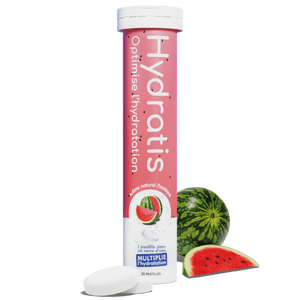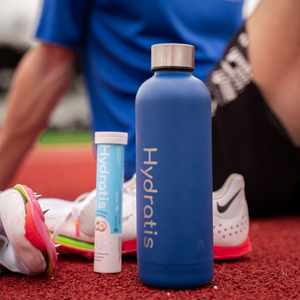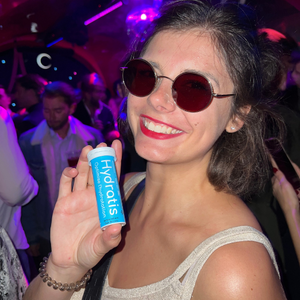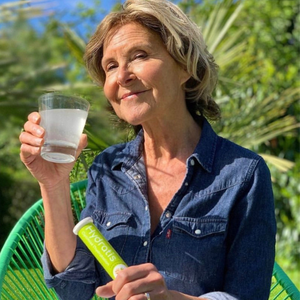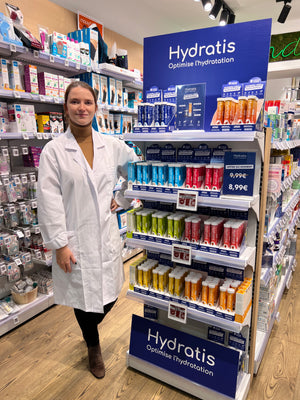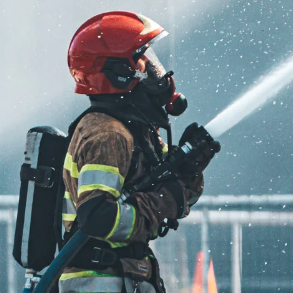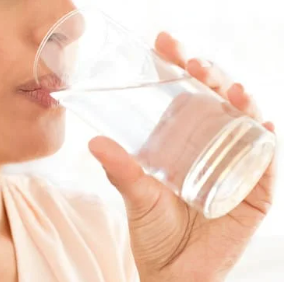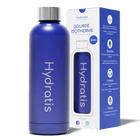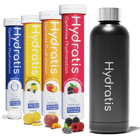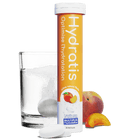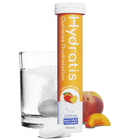
Summer 2021 is just around the corner and at this time of year our bodies are strained to cope with temperature increases. The heat waves that punctuate the summer have a real impact on our body and more particularly its level of hydration, which drops much more quickly with the high temperatures. It is therefore a question of remaining vigilant because the risks of dehydration are real and there is only one solution to avoid its inconveniences: hydrate more and better. Let's see together what are the effects of a rise in temperature on our body and how to deal with it.
The impact of high heat on our body: Thermoregulation and dehydration.
- During heat waves, our body must put in place various mechanisms to maintain its temperature around 37.5°C. Faced with a sudden increase in temperature, it then triggers a series of physiological process processes: this is called thermoregulation.
- First, the blood vessels dilate. This dilation conducts heat to the skin and facilitates heat exchange with the outside: the blood is cooled. This adaptation of the body to heat represents convective cooling. Heat is transferred to the external environment.
-
What is the role of perspiration in summer? The most effective mechanism for coping with the heat remains perspiration. It is an essential phenomenon which, in addition to playing a role in thermoregulation, allows the elimination of many metabolic waste products. Sweating involves the sweat glands which produce sweat. In case of heat, these are activated and cover the skin with a fine film of sweat, bringing it freshness, but it is by evaporating that the sweat will allow the dissipation of heat. We perspire an average of 0.5 to 1 liters of sweat per day, which rises to 4 liters per day in case of high temperatures . Perspiration is mainly composed of water, but also of electrolytes, namely, sodium up to 70 mmol/L and chlorine up to 55 mmol/L. That's why sweat tastes salty!
[ what is perspiration for ]
[ the composition of sweat ]
- In the event of high temperatures, the body may find itself overwhelmed and unable to maintain its body temperature. A lack of water and electrolytes are enough to limit the production of sweat, which will then be insufficient to lower the internal temperature, you risk heatstroke.
- As you will have understood, during a heat wave, your worst enemy is dehydration, here are the signs:
The most obvious sign of dehydration is thirst . This is a message from your brain to tell you that your body needs water.
In case of greater lack of water, your mucous membranes (mouths, lips) are dry , you feel tired and cramps .
The amount urinated is also a good indicator of your level of hydration, if it is low, you must rehydrate.
Also, since the human body is 60% water, losing more than 5% of your total weight can be a sign of severe dehydration.
Finally, headaches , neurological disorders such as confusion , dizziness or disorientation are also indicators of insufficient fluid intake.
If you experience these symptoms, seek the advice of a healthcare professional.
- Besides these unpleasant symptoms and the risk of hyperthermia , the consequences of dehydration on your body do not stop there. A significant loss of water also leads to a significant loss of electrolyte, and more particularly of sodium. However, the latter plays a key role since it is involved in maintaining blood pressure, participates in the proper functioning of nerves and muscles and regulates the water balance of the body. Lack of sodium, also called hyponatremia*, can therefore cause hypotension, mental confusion or even involuntary muscle contractions and convulsions.
-
*Hyponatremia is one of the most frequently observed hydroelectric abnormalities, but what does it actually mean?
The sodium concentration in the blood is normally between 135 and 145 mmol/L, if it is less than 135 mmol/L we speak of hyponatremia: low sodium in the blood. Conversely, if its concentration is greater than 145 mmol/L, we speak of hypernatremia: increased sodium in the blood. These two states (hypo and hypernatremia) will have consequences on the distribution of water in the body. Indeed, water is distributed in the body between the intra and extracellular medium, that is to say inside the cells and outside.
In case of hyponatremia, an imbalance is formed between water and sodium: the blood is less rich in sodium and richer in water. The water will then move from the most concentrated medium (the blood) to the least concentrated medium (the cell) to restore its balance of concentration. The problem is that this leakage of water from the blood to the intracellular medium leads to extracellular dehydration.
Tips for staying hydrated in the summer
To maintain good health during heat waves, it is necessary to compensate for water and electrolyte losses by maintaining an adequate intake. The body cannot store water because it uses it continuously in the processes of respiration, perspiration but also in the elimination of waste through urine. It is therefore necessary to compensate for this daily use by hydrating regularly throughout the day.
The Hydratis formula is the ideal solution to meet your needs and prevent dehydration during hot weather. Hydratis is the first solution adapted from 3 years old to hydrate effectively. Its tablets enriched with electrolytes to dilute in a glass of water, allow your body to fill the loss of water and minerals ( see the BFM interview ). With the help of natural and fruity aromas, hydration becomes a real pleasure, even for those who don't like water!
